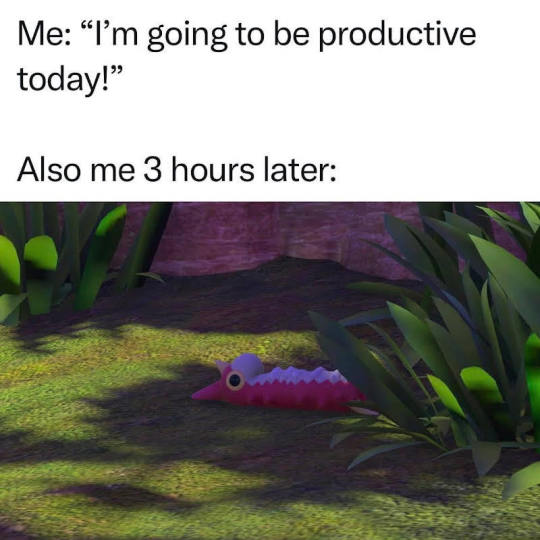#Game Production
Explore tagged Tumblr posts
Note
How much executive meddling occurs in the game industry and development cycles?

There's practically never executive meddling in indie games because there are practically no executives involved. In AAA games, the vast majority of executive meddling comes in only one situation - when the development process for a game goes off the rails and is in danger of going far over budget, missing their ship date, and/or missing their minimum shippable quality bar. This wasn't always the case back in the PS2 era, where publishers were much more hands-on about wanting and demanding certain things, but the high profile failures in large part due to executive meddling have significantly changed things over the past twenty years. Nowadays, studios are given "enough rope to hang themselves" - a free hand to do exactly as they like until they cause their own imminent demise.

I've worked for a lot of publisher-owned studios in my career. I've worked at studios owned by Sony, Microsoft, Activision, and Electronic Arts. I was there in the early executive meddling era and I've been here for the post-meddling era. Since 2006, every studio I've worked at has been given enough rope to hang itself. The ones who don't hang themselves are the ones who are disciplined about the scope and the feature set of the game they are building. They have a schedule, they have a feature set, and they stick to it. You may have guessed the kind of games these tend to be - the franchise games with regular release schedules and the live service games with regular content updates all hope to stay in this lane.

Every game that I worked on that was not good had key problems that could be traced to the team's leadership being unwilling to commit to major choices. This results in a negative feedback loop - developers aren't willing to put in their best work only to see it tossed out, which leads to half-assed prototypes, which leads to the leadership changing their minds. This process typically repeats until the publishers get nervous at the lack of progress and the impending ship date, which leads to pressure to commit, which leads to a brutal crunch to ship something at the end.

When executive meddling happens, it's typically to replace the waffling leadership with somebody whose goal isn't to build the game that was promised, but to get the ailing project to ship at all. The publisher may also call in [rescue operators] to try to save the project if they need experts in key fields. Executive meddling happens when the project absolutely needs to ship and doesn't have the option of [delaying the release].
[Join us on Discord] and/or [Support us on Patreon]
Got a burning question you want answered?
Short questions: Ask a Game Dev on Twitter
Short questions: Ask a Game Dev on BlueSky
Long questions: Ask a Game Dev on Tumblr
Frequent Questions: The FAQ
#how things work#game production#executive meddling#rescue operation#finishing what you start#shipping a game
92 notes
·
View notes
Text
On Scoping And Idea Management for Games
I started my teaching gig (which is incredibly chaotic but I'm very much enjoying it despite that) and I noticed a really consistent theme with some student project pitches around the idea of planning and scoping projects. Some advice that I gave them that I think is worth repeating and reinforcing here:
You are not a AAA studio. Do not plan to make games like a AAA studio.
If your concept, premise, pitch or idea of a game that you actually want to finish contains elements, mechanics or concepts that is predominantly executed by AAA studios, please for the love of god don't expect to be able to execute them without brutally interrogating them first.
Things like: Soulslike game balance, 'open world', heavily systemic design, online multiplayer, complex mechanics, etc. You know, things you largely only see AAA studios (or very experienced dev teams) complete with any semblance of success. There's a reason many of these are only executed by large teams.
This isn't to say it's impossible to execute on these ideas or that it's not worthwhile experimenting with it a little, but if you're going into it with little previous development experience and expect to come out the other end with a 'finished' thing, you're overscoping and setting yourself up for failure.
Ever notice how AAA studios even struggle to execute complex concepts like that? It's not (always) because of mismanagement, but also because it's often overscoped for them too and they are incredibly hard to execute. AAA studios often work on concepts and premises which require a lot of resources to do so effectively. Indie studios don't often make these kinds of games for the same reasons, because conceptually it will easily explode your scope out of the water. Some try, and you can often feel how stretched thin they were.
The point is, you (assuming as a reader that you're an individual with no 'fully' shipped titles) are equivalent to...basically 1/2 a person at an average indie startup. If you have a team, then you're basically the size and scale of a small indie team. Realistically, in all likelihood, you do not have the knowledge, experience or time to do it anywhere nearly as well as a full-time studio production.
And I get why people fall into this trap!
We draw inspiration from what we see most and what we like, and don't often challenge our assumptions about them - it's why we see something like a Batman Arkham Asylum combat system or Photorealistic graphics and say "yeah I could do that easy" without realizing it's actually really really hard to do in the first place, let alone really get right. Studios are notoriously secretive about process, and the reality is there's months and months of unseen work behind pretty much everything.
We also tend to use blanket terms we're familiar with to define our works, as opposed to more fitting terms. For example, some people might call something like Journey an "open world" game, despite the fact it's not strictly an "open world" but rather a linear one with a non-linear presentation.
As a solo developer I too constantly make this mistake of over-scoping or underestimating just how hard it can be to execute on certain concepts or ideas.
Avoiding It
So how do you get around accidentally writing cheques only well-equipped studios can cash? You need to interrogate your ideas a lot more.
Okay, now ask yourself: Is it mostly a premise that is done by people operating at around your level of resources, or by dedicated groups with tons and tons of employees? Has anyone done your mechanic at a small, simple scale? How many studios have done it? What size were they? How many resources do they have? If anyone has executed a similar idea, how many resources did they seem to have to do it? What corners did it seem like they need to cut to get there? Ask yourself how often you see concepts like yours, executed at scale like yours. Ask yourself why that might be.
A generic example to run with: "I am going to make an open world exploration game where you can climb anywhere, with tons of content and things to do".
Ask yourself some of the above questions, and also interrogate all your definitions. What do you define as "open world"? "exploration"? "tons"? "anywhere"? "Climb"? What do these words, specifically, mean to you? Are these reasonable and realistic expectation for the amount of time you have for this project? Have you already executed on any of these before, and how many are unknown to you?
"But Devon, my idea is unique and no one has done it before! I have nothing I can compare it to!"
Nope. Sorry, just no - you're wrong. Maybe they've not done it exactly like you envision it, but I promise you that at this point in time someone has done virtually everything in games before, you've just not heard of it yet. I have yet to hear someone describe a game that didn't do anything I hadn't heard of before to some degree or another. Ask some friends for references and take more time to do research - you'll find parallels if you dig enough.
Execution
If by now you've realized you might be in over your head, you might still be able to do it if you plan very smartly around it and accept scoping down.
I could talk forever about how to break down your scope into something that is more manageable (and probably will in the future), but I'll keep it focused on this idea of interrogating definitions for now.
Running with the "open world exploration game where you can climb anywhere, with tons of content and things to do" example.
Plan to do only one of the verbs in your game really well.
"Climbing" - you could spend forever building a game just around that verb, and people have! Getting Over It With Bennet Foddy. Doodle Jump. Grow Home. People have done this, and even those games tow the line of being complex to make.
"Open world" - this one is very heavy, but make it just about walking around. Challenge the assumption that an open world isn't enough and that it needs 'content' - just make walking around the world really fun. Dear Esther, Proteus, Passage, Beginner's Guide.
"Exploration" - this verb is vague and takes many forms, and while it can easily be dangerous if it gets too big, it can still be small and engaging. A Short Hike, Umurangi Generation, Hidden Folks. You don't need mechanical complexity or depth to make something fun.
Start from that and then expand. Maybe you get to a point where your climbing is really fun and good and you don't even need to add tons of things to do, or open-world mechanics. Maybe your open world is so easy to do that climbing becomes the thing you spend your time on.
---
Essentially the point here is to not assume that because you've seen something done before it's easy to execute on, nor that you should simply run with concepts without fully understanding what you mean when you come up with them first. It's going to not only save you a lot of time and stress, but also more likely to put you in a position where you'll be able to actually finish what you started.
This is also only the tiniest portion of my thoughts on scoping here, so I'm sure I'll add more to this down the road. :)
#gamedev#game development#game dev#indie games#indie game#gamedevelopment#indiegames#indie dev#indiedev#thoughts#advice#production#game production
187 notes
·
View notes
Text
WE MADE A MOLE GAME?!?!?
Hey you!
Do you remember Mole Interest? We sure do! Moles definitely are of interest to us - I mean look at them.
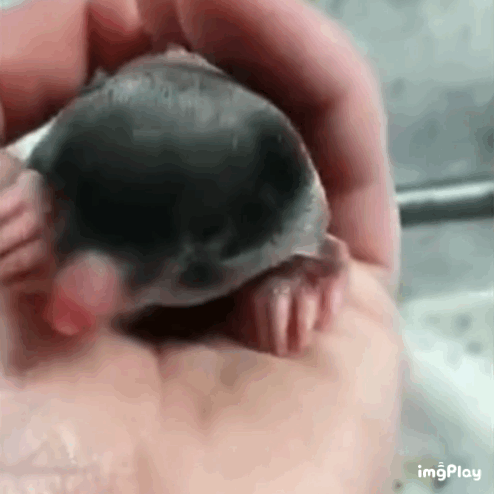
So, we (Plushie Bomb Studios - a team consisting of 18 college students and at least two felines) decided to make...

But like. What IS Molementum?
Molementum is a 3D online party-platformer! Grab up to 3 friends and scramble your way through an industrial mine engaging in various acts of competitive mischief as you try to become the most notorious thief in your squad!
Here's our trailer!
youtube
Download our demo and follow us for updates as we continue making this Moletimate experience!
#molementum#mole interest#mole#game#indie game#video games#game development#game production#indie games#game developers#free game#about us#cute games#mole games#Youtube
5 notes
·
View notes
Text
youtube
The Small Stout Box is a premium packaging option at The Game Crafter. It's fully printed in color on all sides, twice as tall as the Small Pro Box, and strong enough to hold up to your gaming needs.
You can fit a 266 poker cards, 133 jumbo cards, or 10 slugs of small chipboard punchouts with room for 172 poker cards.
Learn more about Small Stout Boxes in our product catalog at https://www.thegamecrafter.com/make/products/SmallStoutBox
#Game Box#Board Game Design#Game Designer#Game Design#Board Games#Tabletop Games#Game Manufacturing#Game production#Print On Demand#Youtube
2 notes
·
View notes
Text
You must have Discord to participate!!!

Game preface: WELCOME TO | FNAF: FAZBEAR PLAZA | This fan game that we're creating will be focusing on a young (12-15 year old) girl who's father had worked at and old Freddy Fazbear's location from 1999 that is now used as a storage facility for all things Fazbear related. Due to the fact of it being a warehouse the father was hired to watch over it during the night so it was never robbed. The main character's father passes due to mysterious occurrences. Years later when the main character is now 20-21 they drive by the old place and out of somewhat pure nostalgia, they walk up and notice that they are still hiring, so she applies and two weeks later she got the job. The main story is under work but we are seeking help for this project cause this is the first time we have ever worked on a fan game. DM ME IF YOU ARE INTERESTED IN HELPING!! I can set you up with the Discord link there! AGAIN: Discord IS required in order to work on this project.
#fnaf#fnaf fangame#help needed#game production#video games#programming#voice actors needed#five night's at freddy's
18 notes
·
View notes
Text
2 notes
·
View notes
Text



I'm making a game, but.. I want to show it to you later when it's done!
(The translation might be weird because I'm using a translator)
0 notes
Text
Sample: Job Board/Galactic Guide Flavor Text (Concord)
From 2022-2024, I was the Narrative Producer on Concord, Firewalk's short-lived team-based shooter. During that time, I served as the Narrative Producer and worked closely with writers, narrative designers, localization, and the audio teams to help bring our characters to life.
While most of my work entailed producer tasks like creating timelines, managing JIRA, and unblocking team members from the resources they needed, I was fortunate enough to be on a team who was intensely supportive of my desire to move formally into Narrative Design as a profession. I've always been a writer, and I love playing in other people's sandboxes.
Below is some of the text I contributed that shipped in the final version of the game. This text appeared on our Job Board, where players accepted rotating quests which were accompanied by or would reward short lore drops on a daily, weekly, and seasonal basis. These also appeared in the Galactic Guide, a codex-like feature in Concord that housed these pieces after they unlocked.
The Galactic Guide had a lot of potential we didn't get to execute on (including some approved pieces I unfortunately can't post because they were for unreleased content), but I am glad I got to contribute to it while I could.
This quote was related to the Freegunner Code, a group of loosely-obeyed rules by the vagabonds and pirates of our universe. This rule was “If You Give Your Word, Keep It.”
You gotta be careful how you talk to people, kid! Never make a promise, and be real obvious about it. A nice loud "might" or "maybe" will go a long way to keep you out of trouble. // HASH TARLTON, CAPTAIN OF TARLTON'S TREASURE //
This quote was related to the Freegunner Code rule “Stay Loyal to the End (of the Job).”
Flew with a crew for less than a week once. Couldn’t stand the lot of them—maybe even hated a few. But until I got that final payout, they knew I had their back. // OVERHEARD AT MAK'S MORACK SHACK //
This was the final level-up flavor text that appeared if a player hit the cap, and written in the voice of the game’s announcer, “The Captain.” It was intended to be evergreen and display forever onward.
Keep your reputation growing, but remember—the stars don't care how famous you are. And real legends? They never stop. There's always more to explore. // THE CAPTAIN OF THE NORTHSTAR //
If you have questions about Concord (and trust me, a lot of people do), you're more than welcome to ask them—but I'm going to caveat this with there are some things I can't talk about (for NDA reasons), some things I don't personally know about, and some things that are just not my place to discuss. Anything about my personal time and tasks on the project is pretty fair game, though!
0 notes
Text
Game Design Log 2: Defining Ermwood
#building games#card game#Design#development#experimental#fantasy#game#game making#game production#graphic design#ideas#journey#log#method#outline#sketch
0 notes
Text



ARCANE | Post Explosion Viktor Illustrations | Mariana Galiano
#arcane#arcane viktor#viktor arcane#jayce talis#arcane show#arcane lol#arcane series#arcane netflix#lol arcane#arcane concept art#arcane league of legends#fortiche productions#riot games
4K notes
·
View notes
Note
Hello, can I ask how difficult is for developers to add accessibility features to games? I am aware it probably varies by type. Recently, I asked if a sound only minigame in one video game could be reworked to add visual cues, as I am deaf. Lot of other fans harped on me its too much work for little gain, too difficult, that it takes away precious developers time, etc. So now I wonder how complicated such thing actually is and how devs view it. Thank you.

They're not wrong in that building such things isn't free. However, you're also right in that we on the dev side should be thinking about better ways of doing this - there isn't only one solution to these problems. Whatever final solution we implement doesn't have to be the most expensive means of doing so. It's actually up to us to think of better/more efficient ways of doing the things we want to do. Adding accessibility options is often a worthy goal, not only to the players who need those options to be able to play, but also for general quality-of-life. If we're making changes after the fact, of course they're super expensive. If accessibility options are a production goal that we plan for, they're much cheaper because we don't have to redo work - we do it with accessibility in mind in the first place.
For example - let's say that we're working on UI and we have this system:
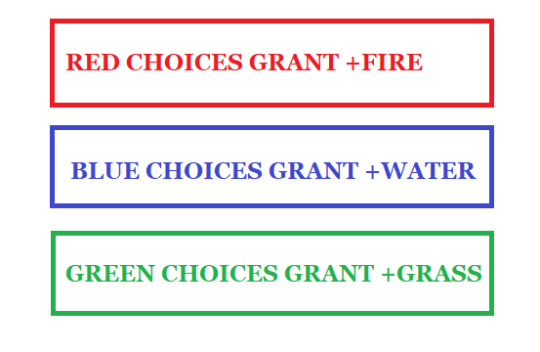
Let's say that we want to improve things for colorblind players. If we wanted to make this more accessible, instead of just using color to differentiate the choices, we could also add different border visuals to provide additional context.
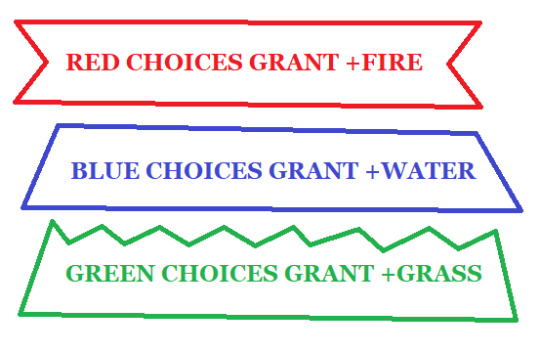
In such a situation, the difference in choices is still obvious if you're colorblind and it helps legibility for non-colorblind players as well.
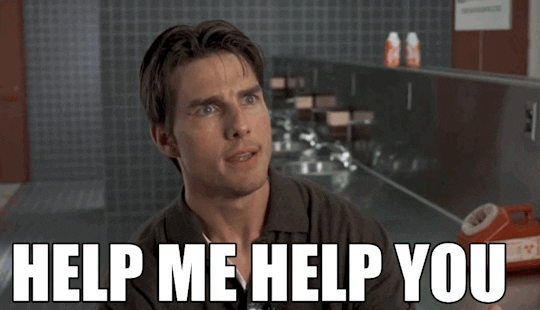
These kinds of UX changes can be expensive if we decide to do it after the fact, but if it's something we decide is important to us from the jump we can compensate for those costs by creating efficient and smart solutions early. Remember, the cost of any change in game development is directly proportional to how close that change is to shipping the game. The earlier the change is made, the cheaper it is. Furthermore, we make resource allocation choices based on our goals. If we want to make a game more accessible, we will figure out a way to do so that fits within our budget and provides a good player experience. Players don't really have a say in how we allocate our resources and that kind of armchair producer talk isn't particularly constructive anyway. Telling us what's important to you and why (including accessibility requests) is really the best kind of feedback we can hope for. Don't sweat coming up with the solutions or fretting about where we spend resources, that's our job.
[Join us on Discord] and/or [Support us on Patreon]
Got a burning question you want answered?
Short questions: Ask a Game Dev on Twitter
Long questions: Ask a Game Dev on Tumblr
Frequent Questions: The FAQ
147 notes
·
View notes
Text

We finish this together.
#arcane#arcaneseason2#arcane s2#jayce arcane#jayce talis#viktor arcane#league of legends#riot games#fortiche productions#digitalart#digital drawing#fanart#my art#jayvik
3K notes
·
View notes
Text
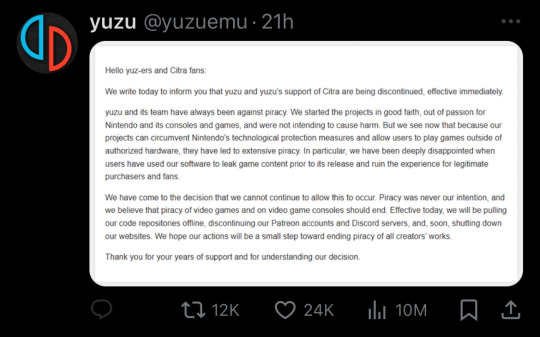
i hope everyone in nintendo’s management department dies and goes to hell no matter what and i’m not kidding
#WERE LOSING YUZU AND CITRA. I DONT KNOW IF YOU ALL UNDERSTAND HOW INSANE THIS IS#game emulation enables piracy yes but it’s also an INCREDIBLY powerful archival tool.#there are plenty of games out there that only exist in their original formats due to emulation.#this lawsuit has HORRIBLE implications for video game history. it makes it incredibly easy for companies to scorched earth their products#if they’re not profitable enough. ART IS GOING TO BE LOST BECAUSE OF THIS. GAMES PEOPLE WORKED INCREDIBLY HARD ON#it won’t just happen to bad games. it won’t just happen to old games. they will use this to keep their remake/virtual console model going#forever and you will never be able to play your favorite games in their true original forms ever again.#i am fucking INSANELY mad rn. capitalism is the death of art fr#personal
11K notes
·
View notes
Text
OUR MOLE GAME IS ON STEAM ?!?!?!?
YEAH! We got our game put onto STEAM - and with the release coming up NEXT MONTH?!?!? You do NOT want to miss this one!!!!
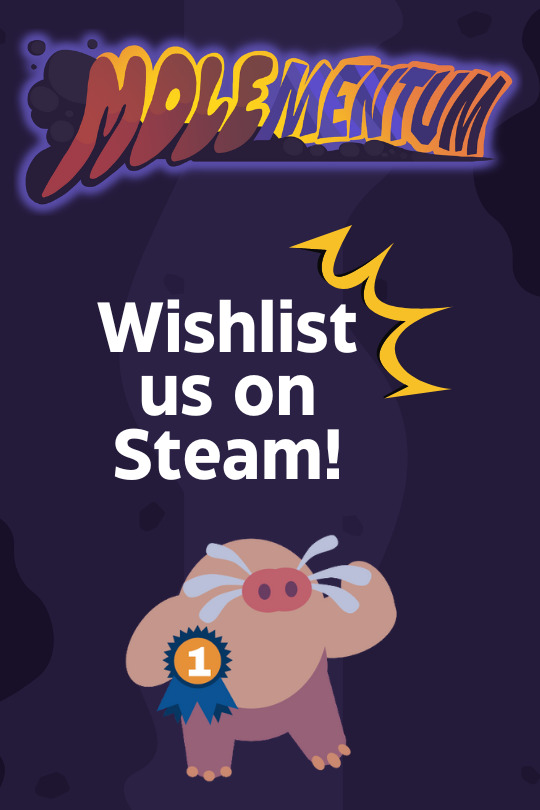
#game#game production#indie game#indie games#mole#mole interest#video games#free game#party games#steam#itch.io
4 notes
·
View notes
